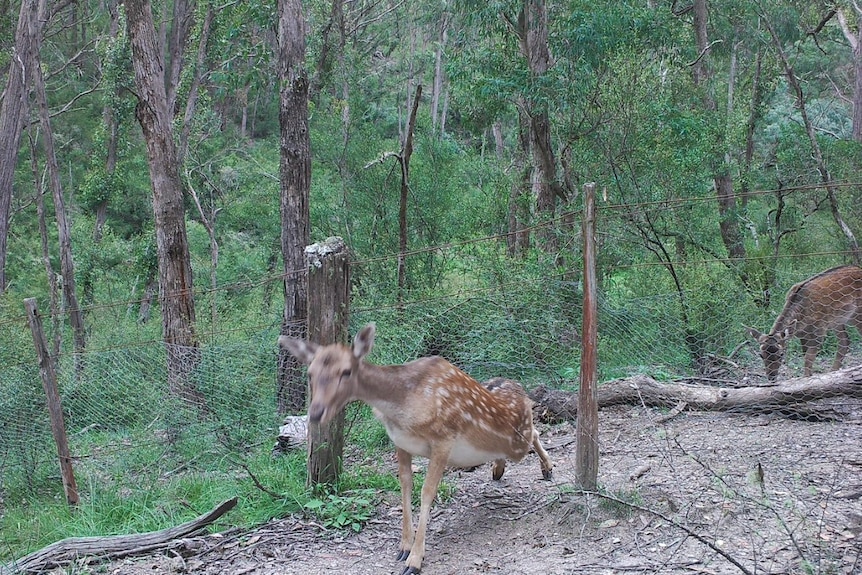The Invasive Species Council (ISC) is lobbying regional independents and crossbenchers, who may end up holding the balance of power after the New South Wales election, to make biosecurity a priority.
Key points:
- The Invasive Species Council warns of an impending feral animal and pest disaster
- It says natural disasters, climate change and under staffed agencies has created major concerns
- Regional independents who may hold the balance of power in a minority government pledge policy reform
ISC advocacy manager Jack Gough has warned of an impending feral “pests and weeds disaster” unless the state government takes urgent action.
“That’s due to the cumulative effect of recent natural disasters and climate change driving further disasters, ongoing under-funding of key agencies, and a lack of political will,” he said.
Mr Gough said the council was sounding a warning ahead of the state election.
It estimated weeds in NSW accounted for at least $1.8 billion a year in lost production, and pest animals cost the economy more than $170 million every year.
It warned the feral deer population had reached about 2 million animals and was spreading at a rate of about 1 million hectares per year.
The council had other data that showed feral horse numbers in Kosciuszko National Park had increased 30 per cent in the past two years to nearly 19,000.
“NSW faces an impending pests and weeds disaster,” Mr Gough said.
Fire and floods exacerbate problem
Mr Gough said that frontline agencies were underpaid and understaffed.
“That’s across national parks, Local Land Services, local government, the Department of Primary Industries,” he said.
“That’s because of fire, flood, the impact of COVID and also this varroa mite response, which has taken 200-300 staff every day away from their normal jobs for more than five months.”
The council has called for 300 additional full-time staff across all agencies, which it estimated would cost $37.5 million a year.
Politicians respond
The council shared its seven-point policy document with major and minor parties and regional independents, with Wagga Wagga independent MP Joe McGirr making a major feral horse reduction in Kosciuszko a condition of his support for any minority government.
“Joe McGirr has put the issue of feral horses trashing Kosciuszko in the spotlight this election and [Barwon Independent MP] Roy Butler has similarly drawn attention to the alarming spread of Hudson’s pear in western NSW in the recent floods,” Mr Gough said.
“We expect that, in any discussions regional MPs are having around balance of power, practical funding and policy reform on invasive species will be an important priority.”
Labor has offered support to the majority of the council’s requests and pointed to a promise to create an Independent Biosecurity Commission, but has not committed to the full funding of 300 frontline staff.
It instead offered the promise of a $10 million good neighbour program to address weeds and pests on government land adjacent to private property.
It is also committed to examine the role of a NSW Indigenous Commissioner for Country to advise on the management of invasive species.
Greens MP Sue Higginson said the party supported the council’s policy document.
“A permanent increase of 300 frontline staff is the absolute minimum requirement to get us on track with invasive species management,” she said.
“An Indigenous Commissioner for Country would give First Nations people a leadership role in invasive species management and ensure that we are respecting the knowledge and understanding that Indigenous communities have.”
Coalition says it is committed
NSW Minister for Primary Industries Dugald Saunders and Minister for the Environment James Griffin said in a joint statement that the Coalition remained committed to controlling feral pests and weeds.
“This financial year we secured an ongoing $40 million for the Local Land Services budget to deliver feral pest eradication, coordinated pest control and extension services into the future,” they said.
The statement did not directly respond to the council’s seven specific policy requests but said the National Parks and Wildlife Service was delivering the largest feral animal control program in its history.
They said it had resulted in more than 100,000 feral animals being removed from national parks in the past three years.
Deer population spreading
Mr Gough said an increase of staff would help agencies catch-up and respond to emerging threats.
“A good example of that is Hudson pear, a cactus that in 2010 was concentrated on the NSW-Queensland border,” he said.
“In the recent floods, we have seen the movement of the cactus, which can put holes in cars and is devastating to stock and wildlife because of its massive thorns, spreading down the Darling [river] to as far south as Dubbo.”
The ISC has also called for dedicated feral pig and deer coordinators.
Loading form…
